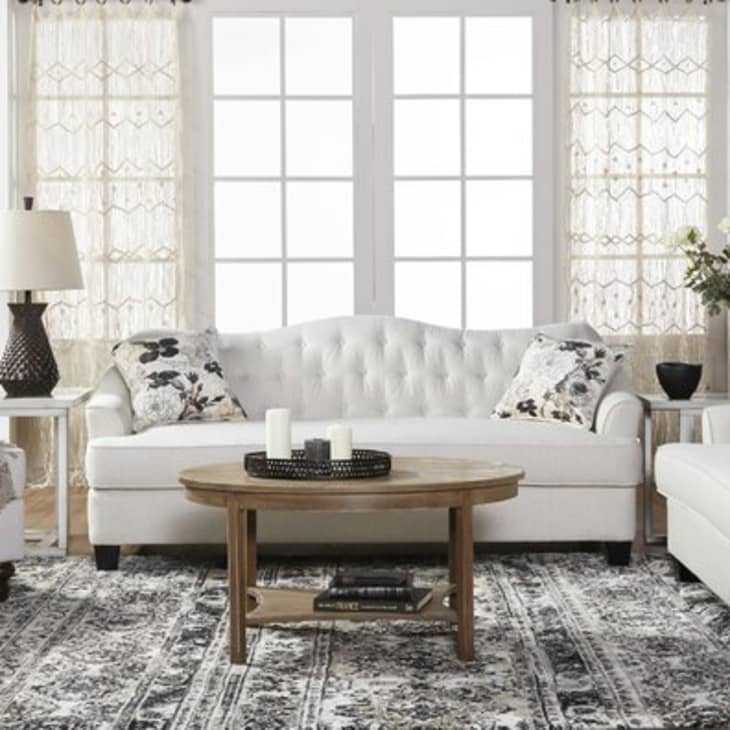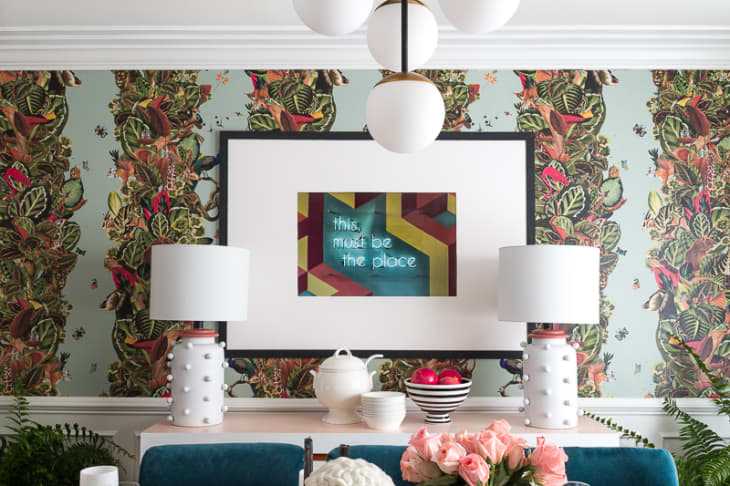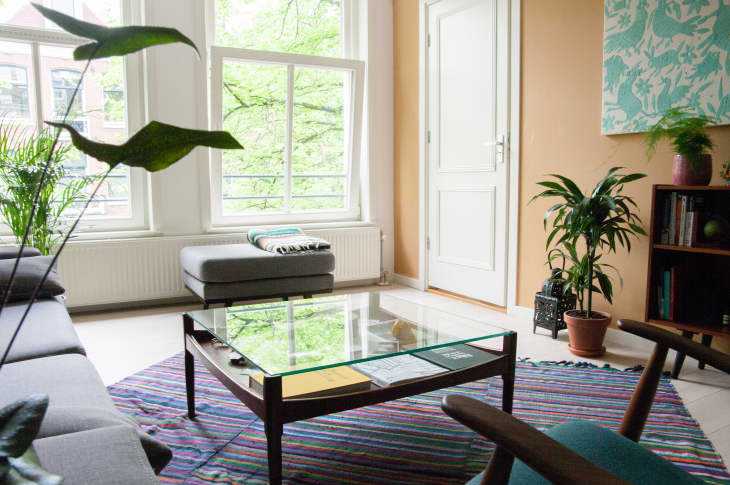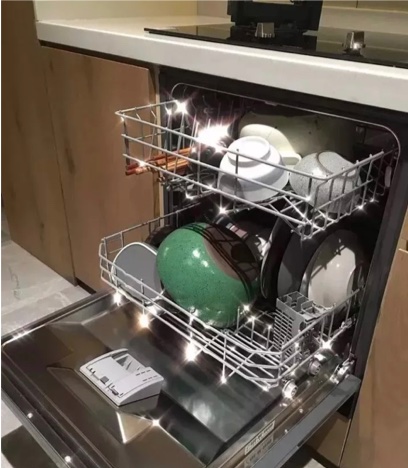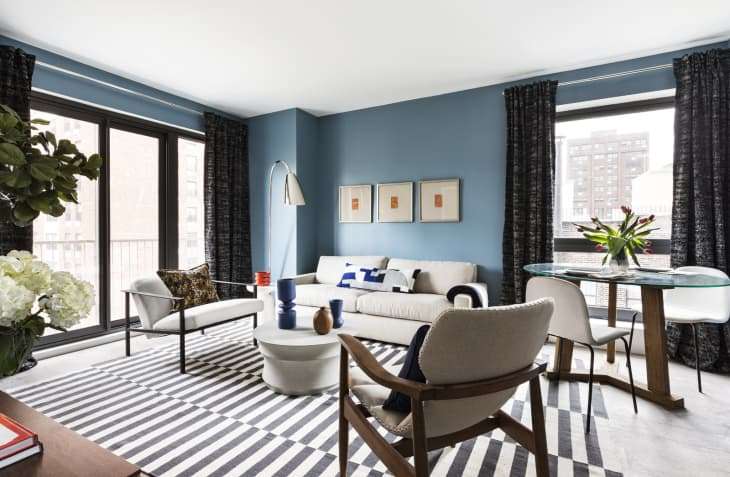Some people rent out storage units or fill their attics with the things they might need later, but definitely don’t need now. For the past five years, my childhood bedroom was that space. It housed clothing, sentimental items, paperwork, and a whole lot of books I had read and wanted to hold onto, or simply never got around to donating. And it really did function like a storage unit, given that I only lived an hour away from my parents’ house and could hop on a train whenever I needed to swap out winter coats for sundresses.
As a result, the closets in both my childhood bedroom and New York City apartment remained perpetually full. I only had to face the consequences when I moved back home in March 2020. Then, the former storage unit became my only private space.
Everything I owned now lived in my childhood bedroom — its walls painted a bright blue, with bedding to match. To say it overwhelmed me was an understatement. For almost a year, I told my therapist about my wish to declutter and redesign my bedroom, so the space reflected my adult self, but I never got around to opening the paint cans for months. I realized I needed help to make a change.
After receiving both doses of my COVID vaccine, I decided to hire a painter to help refresh the space. It was up to me, however, to prepare for the job. My father helped move decades-old furniture out of my room, but I had to carry each article of clothing and piece of decor across the hallway into the guest room. The arduous process forced me to come in contact with forgotten items buried in my closet and drawers. When I walked back into my newly painted and empty bedroom, I saw the opportunity to start fresh and decide what would go back into it. Here are a few things I learned in the process.
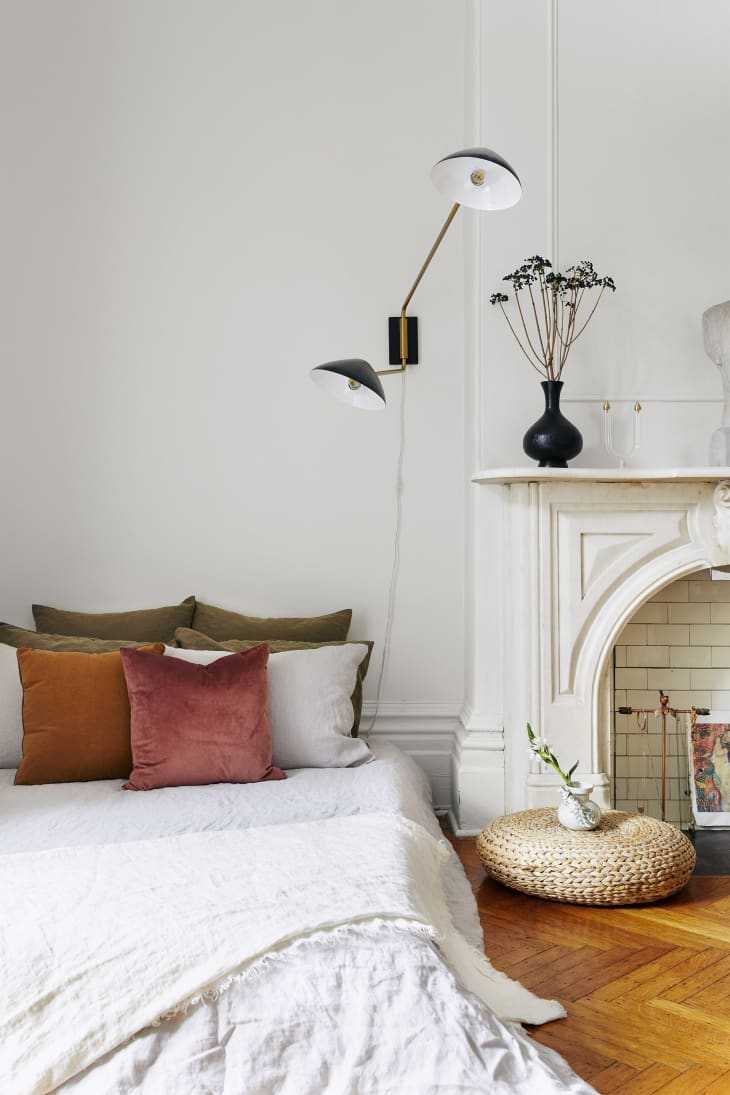
It’s important to regularly reflect on what serves you.
Like many people, I have a habit of holding onto tchotchkes for their sentimental value and old clothes in hopes of fitting into them again. For a year, I grieved my pre-pandemic self — a version of me that wore fabulous high-waisted jeans anywhere other than the couch, lived independently, and socialized often. Moving everything out of my room allowed me to re-evaluate what still served me and fit into my life. Finally redoing my bedroom reminded me that letting go makes room for new possibilities and reaffirmed that I have the power to change my circumstance as I see fit.
A few good things go a long way.
My overflowing closets were the product of searching for the best deals all the time. I prided myself on my ability to bargain shop at big-name retailers and thrift stores. Yet holding each article of clothing I own in my hands made me realize that I’ve wasted a lot of money on subpar quality — and if that was the case, had I really scored a major deal? Sure, a few shirts from fast-fashion retailers still hold up, but a lot of my discounted purchases would have been better spent on a single, high-quality item. I wish I hadn’t learned that the hard way, but moving forward, I’m trying to spend money on what I need and what will last.
Your environment can inform your lifestyle and mood.
The back of my headboard used to face my windows, but I decided to rearrange my furniture after moving it out. Now, the side of my bed faces the windows, and the sun wakes me up. That small shift results in a better start to my day. Another benefit of rearranging my space? Being able to use that space more efficiently. I can now fit a reading nook and a TV area in my bedroom.
Your living environment should support and function for you and your needs, not just your aesthetics. Think about how your bedroom and other rooms impact your routine and mood. Do you find it hard to be productive at your work-from-home desk ? Are your bright-colored bedroom walls impacting your ability to get a good night’s sleep ? If so, it may be time to redesign a part of your home.
Focus on growing where you’re planted.
When I moved back home, I put off making changes to my bedroom because I didn’t know how long I’d be there. Looking ahead to the future became a coping mechanism that provided hope in a devastating period.
Now, I realize that making the best of my present situation provides its own kind of hope. Instead of spending hours online looking at apartments, I could have made strides toward a better living situation and environment for myself in the present. My bedroom isn’t complete, per se — I still put off purchasing decor or furniture out of trepidation that it won’t make it to my next apartment — but I feel happier and more comfortable now that I’ve invested in my current self.
